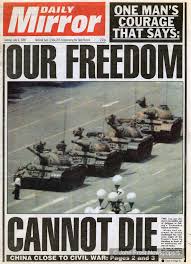Last PLP field study ever. This time, it is to a place where I did not expect a field study to go. Cuba, a land of revolution, culture, cigars and rum is where we went. Let me be clear in the fact that we did not go to study rum and cigars. We went to study the revolution through a series of questions come up by groups. We were then in charge of writing a sort of “coffee table” book answering our questions.
Before we delve into the assignment at hand, I would like to talk a little about Cuba itself. On our trip, we visited the renown cities of Havana, Cienfuegos, Trinidad, Santa Clara, Vinalles, and Varadero. The culture of Cuba flows through each of these cities very much (except Varadero).
Cuba in Reflection:
Cuba is one of very few countries to be communist and be only 90 miles off the coast of America, the juxtaposition of Communism. Throughout the years since its solidarity from Spain, it has gone through a couple of governments including united states control, a dictatorship, and now communist. All these changes seem to have had an adverse affect on all parts of Cuba including how 1950’s cars still roaming the streets of Cuba alongside Soviet Ladas to almost causing world war 3.
Chiefly among these quirks of Cuba is their unwillingness to work. Infrastructure is slow to change, government run concession stands refuse to sell, Cubans generally being always late, are among somethings that do not really work well in Cuba. I suppose this is mainly centered around government operated services where they do not make more money by serving people anyways, hence their lackluster attitude to provide service.
While talking to a local on the Malacon of Havana and a tour guide later on, I found out that there were many people with relatives outside of Cuba. During the exodus of Cubans leaving Cuba in the hopes of a brighter future elsewhere through the Mariel boatlift or US dry foot policy, many people where separated from their families. While some send money back after they achieve financial success, it is very difficult for their relatives in Cuba to visit because of the high cost and time to get a visa. This leaves many people away from the rest of the families for decades.
Something I found very interesting is the existence of a China town nestled deep in Cuba. Not seeing any sort of evidence that there are Chinese people with Cuban nationalities around, it is extremely strange that a Chinatown has a reason to exist there. I later found out that there was a small population of Chinese people here used for slave labor a long time ago. Their descendants in Cuba are virtually nonexistent anymore because of the years of mixing with Cubans.
We participated in the May day parade which was very cool. We paraded past Revolution Square where we got to see Raul Castro himself and his successor to president of Cuba Miguel Díaz-Canel. While there seemed to be a lot of people at the parade, we saw numerous government organizations parading rather than normal citizens which we expected would make up the majority of this parade. Even our home stay people did not come which must mean that the hype of what May Day represents is gone. Some do not really cares about the celebration of the workers anymore and want to just get by.
I have always known that Varadero is the little safe bubble for tourists that come to Cuba to relax rather than to for the culture. I did not know it was really sheltered and sectioned off from the rest of Cuba. Being 2 hours from Havana probably already discouraged Cubans anywhere near the place. The added toll to get into the vicinity of Varadero probably gave a reason for everyday Cubans not to go. The area of Varadero is really only for resorts and foreigners. There are no residential districts that regular Cubans could reside in there. It is probably like this because the whole point of Varadero is to attract tourists to feed the 2nd most profitable business in Cuba.
Back to the Project:
The question that my group (Chloe T and I) Answered was how what were the cause and consequences of the Bay of Pigs invasion in Cuba.
Below will be attatched the book that we have written on the subject.

